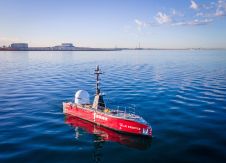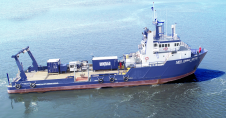Why Pursue ISO Certification?
One of the first questions an ISO reviewer asks a company’s CEO at the very beginning of an auditing process is: what are you looking for by pursuing ISO certification? There are several obvious wrong answers to this question, such as “getting the ISO certificate exhibited on our office walls” or “having our technical reports, maps and correspondence showing the nice little seal saying we have gone through ISO certification”.
So, what is the right answer? There should be several; however, I would like to focus on some that I think better reflect what we should keep in mind when deciding to pursue ISO certification.
- To overcome those small or not-so-small repetitive mistakes always present in our work, both during fieldwork and office processing and production of deliverables.
- To ensure that the prestige won after long years of hard work is properly safeguarded.
- To improve efficacy and, as a by-product, efficiency.
- To have a set of internal technical procedures that provides guidance for always carrying out the work in a validated and proven manner.
- To create the space for everyone within the organisation to make contributions on what they consider beneficial and detrimental to the organisation.
- To give clients the space to tell us what they like and dislike about our products and services.
These were the few answers at the forefront of my mind, and I have given them here without following any recommendations that could be retrieved from a book on the matter, because they are common sense and based upon direct contact with everyday issues that impact organisations in many ways. When work is done in a manner that is not entirely correct, it must be repeated in full or in part, with a significant impact on the opportune issue of the work contracted, not to mention the financial impact improper work demands on a company, due to additional trips to the field, usually far away from the base.
Regardless of the size of an organisation, putting in place everything required for ISO certification is hard and cumbersome work, which compromises everybody within the organisation. The process involves getting people acquainted with what ISO certification is - by itself, a major accomplishment - not to mention detailing all the particular procedures, depicting each part of the organisation and their ways of working.
Why bother so much if, even when we have completed this work and certification has been accomplished, the company will have to go through continuous auditing year after year?
The answer to this additional question is embedded in the answers to the first question: since any organisation will always have repetitive mistakes present in its work that will have to be identified and overcome, it will always have to look after its prestige, it will always have to improve efficacy and look for efficiency, it will have to develop updated technical procedures for new systems incorporated, it will always have to listen to its employees and clients in order to keep up with the times and be capable of responding to the ever-changing challenges posed by the practice of its work.
I am glad we have decided to pursue ISO certification, since we have seen immediate changes in the way we work, even though the scope of the company's work is exactly the same as prior to starting the certification process. The benefits of ISO certification appear very shortly from the start.
This issue could be old news to many, as nowadays ISO certification is spread well around the world; however, I think that saying a few good things about it will not cause harm.

Value staying current with hydrography?
Stay on the map with our expertly curated newsletters.
We provide educational insights, industry updates, and inspiring stories from the world of hydrography to help you learn, grow, and navigate your field with confidence. Don't miss out - subscribe today and ensure you're always informed, educated, and inspired by the latest in hydrographic technology and research.
Choose your newsletter(s)
























